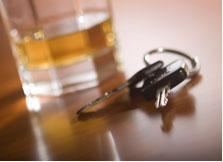Breathalyzer Tests


Popular media, second-hand accounts, and an array of confusing and often conflicting “advice” leaves many people wondering, “If I’m suspected of drunk driving and the officer wants me to take a breathalyzer, do I blow or do I refuse?” The answer, unfortunately, is not one-size-fits-all. The truth of the matter is, depending on your unique situation, refusing to submit to a breathalyzer test can either help or hurt your case. In fact, nearly all attorneys would agree that the first thing a person facing an OUI charge should do is to contact a competent attorney to begin reviewing your case and building a defense as soon as possible.
If you or someone you know is facing drunk driving or other criminal charges, contact the Boston criminal defense lawyers at Bellotti Law Group, P.C. today at 617-225-2100. Our criminal defense attorneys have amassed reputations as some of the Commonwealth’s most skilled, knowledgeable, and successful criminal attorneys. Our 30+ years of favorable verdicts for our clients speak to our success. Having us on your side will make all the difference in your case, as it already has for the thousands of criminal clients we have successfully defended through the years. Contact us today for a FREE evaluation.
Make No Mistake
Refusing to take a breathalyzer will result in license suspension, at the minimum. Refusing is never entirely free of consequence. On the other hand, however, a failed breathalyzer test will greatly impact your chances of successfully defending an OUI case, which can ultimately result in criminal penalties. Police officers are required to inform suspected drunk drivers of their right to refuse the test and the consequences, but the advice of a lawyer is often not readily available. As such, this information should be taken into account, depending on your situation:
- Consequences of failing a breath test: Pursuant to Massachusetts criminal law, a BAC of .08 or greater is a “per se” violation of the law. This usually results in civil or criminal penalties. If an offender is over 21 years of age and has a BAC of .08+, an automatic 30-day license suspension results, with additional criminal charges, presuming that the person is operating under the influence of alcohol. OUI criminal penalties can be severe, including heavy fines, potential jail time, and additional license suspensions.
- Refusal to take the breath test: If you refuse to take the breath test, an immediate license suspension will result. The length of that suspension depends on the offender’s history of OUI violations. If a person over 21 has no previous OUI convictions, his/her license is suspended for 180 days. One previous OUI conviction results in a 3 year suspension, two results in a 5 year suspension, and 3 or more results in a lifetime suspension. Previous OUIs involving serious bodily injury or vehicular homicide carry more stringent suspensions. It is important to note, though, that under Massachusetts law, a refusal to submit to a breath test cannot be introduced as evidence against you by the prosecutor during trial. The refusal is inadmissible because this evidence would be forcing a person to provide potentially incriminating evidence or impliedly admitting that they were intoxicated, which is unconstitutional.
In short, there is no distinct “yes or no” answer to whether or not taking a breath test is in your best individual interests, depending on your circumstances. However, knowing the pros and cons can help you make an informed decision, should you find yourself in such an unfortunate situation.
DISCLAIMER: This site and all information on it is intended for informational purposes only, and is NOT LEGAL ADVICE. You should seek competent legal representation on any legal matter.

